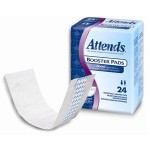Signs That a Patient Might Require Bed Pads for Incontinence
 Identifying when a patient might require bed pads for incontinence involves observing several key signs and symptoms related to urinary or fecal incontinence. In Home Healing, LLC provides bed pads for incontinence in Tampa, West Palm Beach, Boynton Beach, Boca Raton, Lutz, FL, Odessa, FL and surrounding areas.
Identifying when a patient might require bed pads for incontinence involves observing several key signs and symptoms related to urinary or fecal incontinence. In Home Healing, LLC provides bed pads for incontinence in Tampa, West Palm Beach, Boynton Beach, Boca Raton, Lutz, FL, Odessa, FL and surrounding areas.
These indicators can help caregivers or healthcare professionals determine the necessity of additional incontinence management tools, such as bed pads, to maintain hygiene, comfort, and skin integrity.
- Frequent Bedwetting: If a patient often wakes up in a wet bed, this is a clear sign that bed pads are needed. Frequent bedwetting can result from various conditions, including nocturnal enuresis, overactive bladder, or urinary tract infections.
- Limited Mobility: Patients with reduced mobility due to conditions like stroke, severe arthritis, or post-surgery recovery may have difficulty reaching the bathroom in time. This can increase the likelihood of incontinence accidents, necessitating the use of bed pads to protect bedding.
- Cognitive Impairments: Individuals with dementia or other cognitive impairments may not recognize the need to use the bathroom or forget where the bathroom is. This can lead to accidental incontinence, making bed pads a practical solution to manage these incidents.
- Chronic Illnesses: Chronic conditions such as diabetes, multiple sclerosis, or Parkinson’s disease can affect bladder or bowel control. Patients with these conditions may benefit from the additional protection bed pads provide.
- Skin Irritation and Breakdown: If a patient shows signs of skin irritation or breakdown due to prolonged exposure to moisture from urine or feces, it indicates that current incontinence management strategies are insufficient. Bed pads can help keep the skin dry and reduce the risk of pressure ulcers and infections.
- Use of Diuretics or Medications: Certain medications, especially diuretics, increase urine production, which can lead to incontinence. Patients on these medications might require bed pads to manage the increased urinary output effectively.
- Nighttime Incontinence: For patients who experience incontinence primarily at night, bed pads can be particularly useful. This ensures the bed remains dry, promoting better sleep hygiene and comfort.
- Caregiver Convenience: In cases where caregivers are involved, the use of bed pads can simplify the management of incontinence. It reduces the frequency of linen changes and can make the caregiving process more efficient.
- Postpartum or Post-surgery Recovery: Women who have recently given birth or patients recovering from surgery may experience temporary incontinence. Bed pads can provide a sense of security during this recovery period.
By recognizing these signs, caregivers and healthcare professionals can implement appropriate measures to ensure the patient’s comfort and dignity while effectively managing incontinence. Bed pads serve as a valuable tool in maintaining hygiene and preventing complications associated with incontinence. Please reach out with any questions you might have, and we will be happy to help.
Call us anytime if you need more information.
